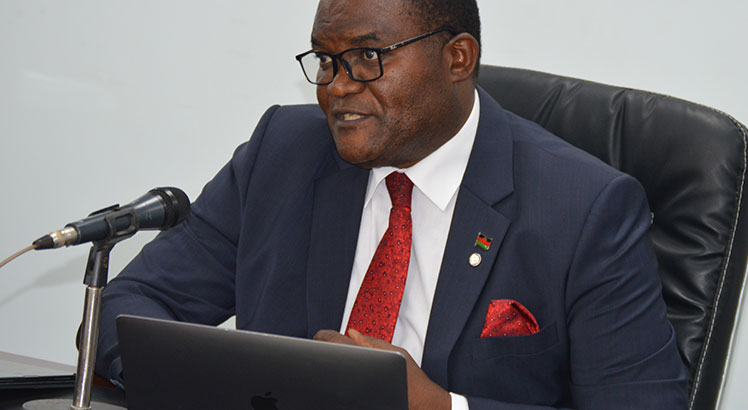Stand-off on drugs deal
There is a standstill since 2021 when PPDA cancelled a memorandum of understanding (MoU) between government and local suppliers of drugs and medicines to Central Medical Stores Trust (CMST).
The standstill follows stakeholders in the drugs manufacturers sectors’ failure to agree on new guidelines government formulated to drive the Buy Malawi Strategy (BMS) after Public Procurement and Disposal of Assets Authority (PPDA) suspended and earlier procurement arrangement.

Among others, BMS launched in 2013, aims at enhancing competitiveness of local firms and stimulating local production, promoting industrialisation and enhancing import substitution.
A PPDA review branded the MoU as ‘illegal and irregular,’ citing a suppression of competition and a compromise of CMST ability to get value for money for procurement undertaken under the arrangement.
PPDA director general Edington Chilapondwa informed the Pharmaceutical Association of Malawi (Phamam), in a letter dated September 21 2021, that entering framework agreements without a competitive process is a legal shortfall.
He said: “The board of directors of PPDA has taken a decision to suspend any procurements under the BMS-Phamam arrangement with immediate effect pending a detailed audit of the transactions and an assessment on the performance of the local manufacturers as well as an analysis of whether the arrangement is providing value to the government and indeed the citizen of Malawi.”
But a letter Weekend Nation has seen, dated December 7, 2021, from Phamam chairperson Chokani Mhango to CMST chief executive officer Chikaiko Chadzunda, challenges the procurement’s cancellation under the BMS Pharmaceutical Chapter, citing a lack of legal grounds and an unspecified suspension period.
Reads the letter: “The finding [by PPDA] is vague and ambiguous. The MoU is self-explanatory and was entered into for clear and specific reasons: to support the Malawian pharmaceutical manufacturers who would otherwise stand no chance of survival against multinational corporations many times the size, even of the Malawi economy.”
The letter also highlights the BMS’s role in bolstering all sectors of the economy, arguing that the Pharmaceutical Chapter’s cancellation would contradict the government’s industrialisation efforts.
In a WhatsApp response yesterday, Mhango insisted that PPDA, a government agency, had no mandate to cancel or recommend cancellation of an MoU of the whole government with the local manufacturers.
Said Mhango: ‘‘We queried that and there was no response. We asked to have the MoU reviewed for any provisions that the incoming government found not to be in line with its policy. … Three and a half years later, the government has come up with a new MoU which they want discussed with the manufacturers.’’
He said his organisation has been told that in the interim, some manufacturers have closed shop, and are no longer in business, while CMST resorted to importing essential drugs from Kenya.
Mhango said the sidelining of local manufacturers has caused some drug shortages, especially in the environment of limited resources of forex.
New guidelines have since been formulated and stakeholders have held multiple consultative meetings on the matter but, according to sources, have not yielded much.
CMST spokesperson Herbert Chandilanga could not say the factors contributing to delays in signing the new MoU, arguing that this could best be explained by the Ministry of Trade.
But Chandilanga said CMST is always available for discussions and input on the realities of Public Procurement of Medicines and Medical Supplies which would inform the finalisation of effective guidelines
Minister of Trade and Industry Sosten Gwengwe, in an interview last week, indicated that a compromise has been reached, suggesting that CMST and Phamam will soon announce signing dates for the new guidelines.
Said Gwengwe: “There has been progress in balancing the Buy Malawi initiative with the prevention of exploitation by certain traders.”
In a telephone interview on Thursday, Parliamentary Committee on Trade and Industry chairperson Paul Nkhoma described the delays as regrettable and a cause of concern.
He said the committee will convene a meeting with the parties involved to devise a strategic plan for the BMS.
Said Nkhoma: ‘‘Within the forthcoming fortnight, we will call upon the central figures, including representatives from Phamam and PPDA, to gain comprehensive understanding of the situation prior to formulating our stance.’’
Commenting on the issue, public health expert Maziko Matemba said the cancellation of the MoU was a necessary step towards reform.
But he stressed the need to expedite implementation of the newly-developed guidelines and urged relevant parties to formalise their commitment by signing the MoU.
‘’As CSOs, we maintain our stance that the Best Buy Malawi campaign is essential for the empowerment of local enterprises. We are therefore hopeful that any existing disagreements will be resolved promptly and with the urgency they warrant.’’
Government signed its first MoU with Phamam on April 18 2013 and CMST was identified as a key entity in the implementation of the strategy. The MoU stipulated that the government would procure certain identified medicines from only those local medicine manufacturers that were party to the MoU.
The Framework Agreements were for the period between October 4 2013 and October 3 2018. At the end of the expiry of the first MoU, the parties involved facilitated the renewal of the agreements.






)) Hot girls are waiting for you on —– https://u.to/sYM6IA
bn9the